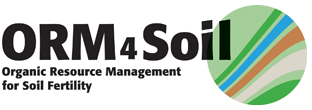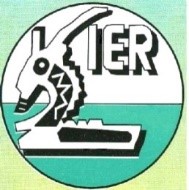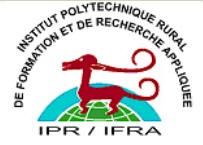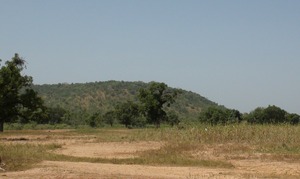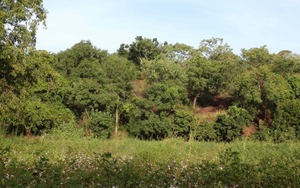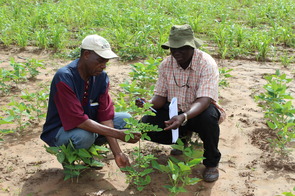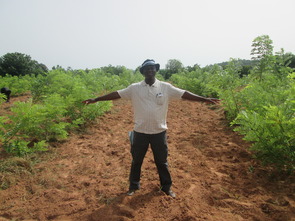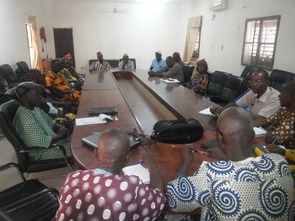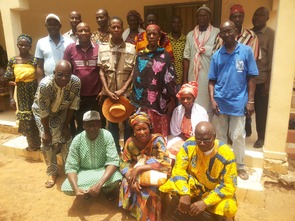National Coordination: Dr. Odiaba Samake (IER)
Intervention Areas:
- Maféya: Arid Sudanian; Mixed crops, livestock
- Zoumana Diassa: Sub-humid Sudanian; Mixed crops, cotton
Institute d'Economie Rurale
Contact person: Dr. Odiaba Samaké
Institute Polytechnique Rural de Formation et de Recherche Appliquée
Contact person: Dr. Sidiki Gabriel Dembélé

Université des sciences sociales et de gestion de Bamako
Contact person: Dr. Famagan Oulé Konaté
Mali
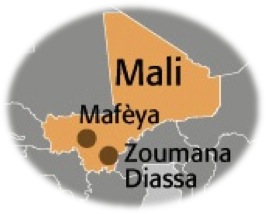
Soils in Mali face the threat of increasing population growth, overgrazing, decrease of average fallow periods and lack of organic resources to replenish the soil.
The two intervention areas of ORM4Soil in Mali differ in climate, agro-ecological zones and social context. While Mafèya has sorghum as the main crop (more than two thirds of cultivated land), the local economy of Zoumana Diassa is dominated by cotton (36% of cultivated land).
Mafèya
Zoumana Diassa
Field trials
Assessing the effects of organic and mineral fertilizers on soil characteristics and yields of cotton, sorghum and maize in the alley cropping system: case study with Gliricidia sepium.
The participatory rural appraisal (PRA) conducted in 2015 in the villages of Mafèya and Zoumana-Diassa showed a preference for agroforestry techniques, with alley cropping systems being chosen by more than 70% of farmers for testing and up-scaling. Field experiments were implemented in 2016 at the research stations of Farako and Katibougou as well as on-farm trials on 15 farms in each site, to evaluate the effects of Gliricidia sepium based alley cropping system on sustainable management of soil fertility and productivity.
Innovation Platforms
Innovation Platforms (IPs) were installed in May 2016 in both agro-ecological zones during workshops in the cities of Koulikoro and Sikasso. The IP members were identified on the basis of their knowledge of the principal site-specific problems and their motivation to make changes within the framework of soil fertility build-up while considering the value chains of the main crops in the two sites. Preliminary results from the agronomic trials are brought to the IP discussions so that the different stakeholders can assess their potential for adoptability and scale-up.
As the IP process matures, its setup is expected to proceed to the regional and national levels, engaging different stakeholders and policy makers in an exchange with the ambitious aim to bring soil fertility into the national agenda for agriculture.
 This website was archived on November 30, 2022 and is no longer updated.
This website was archived on November 30, 2022 and is no longer updated.
